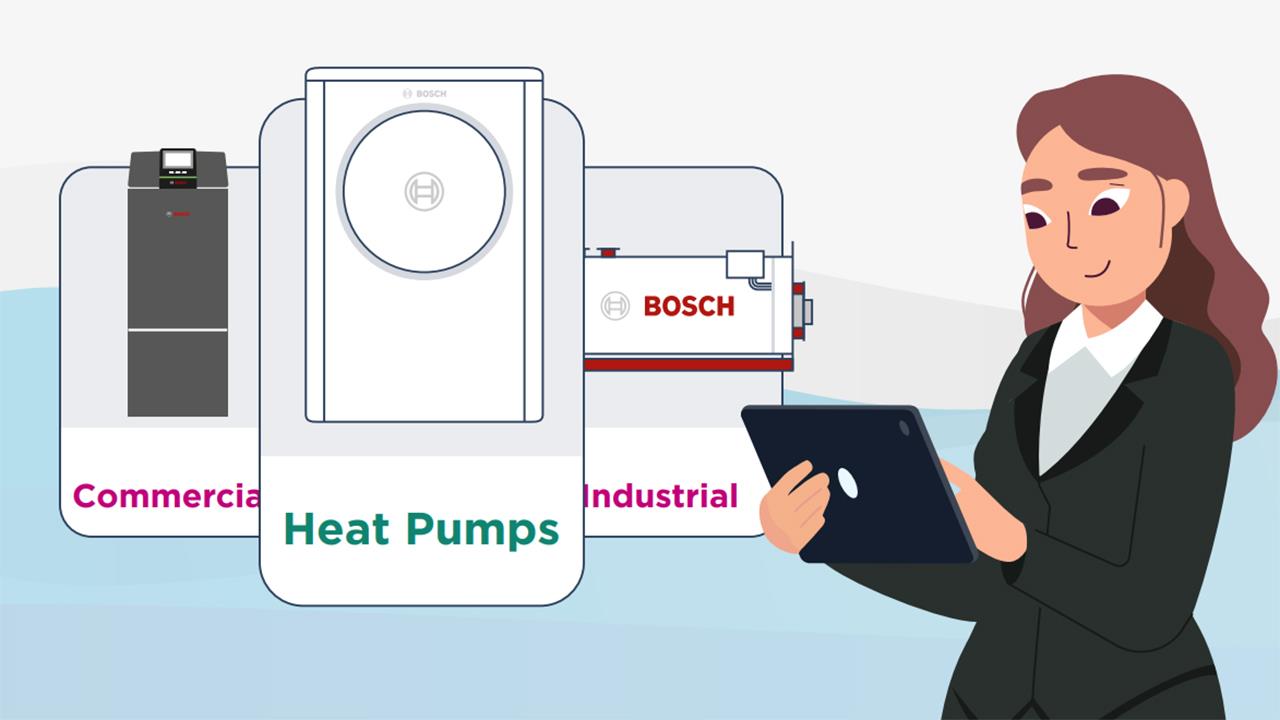

Do you ever pause and wonder, how your building developments and projects will stand the test of time? Or how much the world will change in that time as the UK adapts to ever-changing UK net zero targets?
Bosch Commercial & Industrial, a leading manufacturer of energy efficient heating, cooling and hot water technologies, believes heat networks hold some of the answers when it comes to the decarbonisation of heating and hot water.
The company has launched a new explainer animation that goes into detail on how heat networks work, their benefits, and how Bosch is well placed to help implementation of networks across the country. This can be viewed on the company’s website here: www.bosch-industrial.co.uk/heat-networks.
How do they work?
Heat networks make it possible, as well as affordable, to decarbonise heating and hot water while futureproofing developments for changing technologies, all while making properties more sustainable as a result.
Heat networks are already working around the UK, capturing and generating heat and transferring it to homes and businesses. At the core of every heat network is an ‘energy centre’ a central plant, these can range from small communal plant rooms, to large scale energy centres, generating heat from sources like:
What happens to the heat generated?
So, once the heat is generated, the hot water is pumped through a network of pipes to properties connected to the heat network.
Each property has a Heat Interface Unit that takes the heat from the network and distributes it round the building, to heat the home and provide domestic hot water use.
For end-users, they have the look and feel of combi boilers, giving instantaneous heating and hot water from a single unit, but they need less maintenance and don’t require any gas to run through the property.
Higher performance Heat Interface Units can be recognised by their BESA-registered status. Forward-thinking housing developers, local authorities, and social housing providers are already installing heat networks in both new and existing developments, helping them balance emissions, protect the environment, and provide affordable running costs for customers.
How does Bosch Commercial & Industrial know this?
Bosch offers a wide portfolio of heat generation technologies and BESA-registered heat interface units to help thousands benefit from affordable low carbon heating and hot water. It has helped create heat network solutions in every major UK city, providing service through each stage of their heat network project:
To summarise, the benefits of heat network schemes are undeniable, particularly for densely populated areas such as cities and towns. To reduce emissions and futureproof your developments for tomorrow’s clean energy, join Bosch Commercial & Industrial today.
To find out more about heat networks and watch Bosch Commercial & Industrial’s new explainer video, please visit: www.bosch-industrial.co.uk/heat-networks.
If you'd like to keep up-to-date with the latest developments in the heating and plumbing industry, why not subscribe to our weekly newsletters? Just click the button below and you can ensure all the latest industry news and new product information lands in your inbox every week.